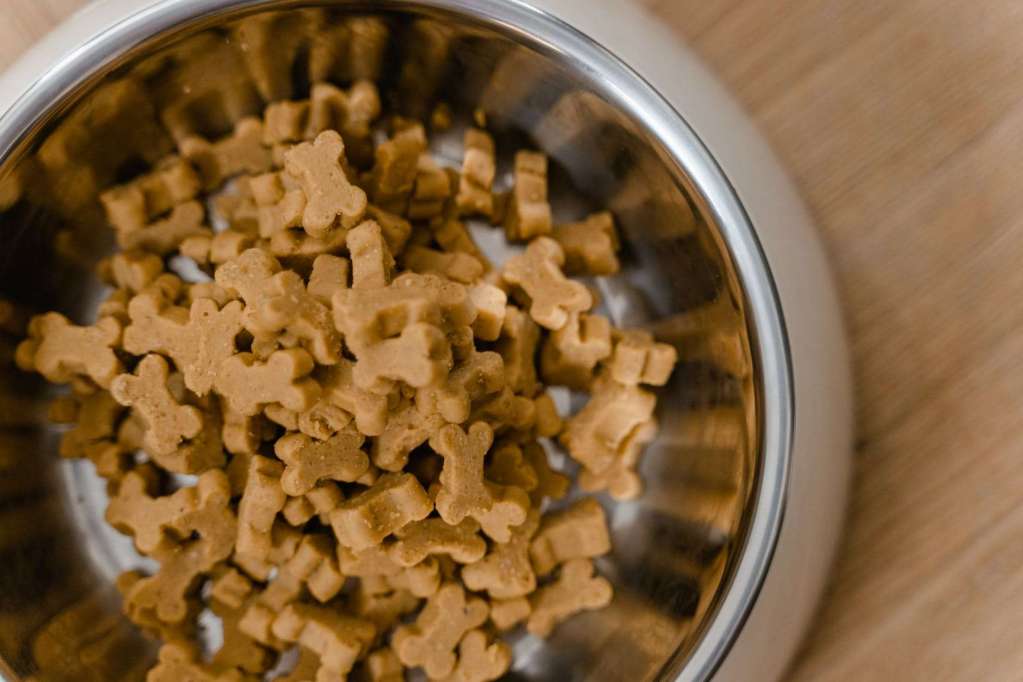Paprika is a common spice used in many dishes, but can dogs eat paprika? While it is not toxic in small amounts to dogs, it is generally not recommended to give them paprika or foods seasoned with it. There are a few reasons why paprika should be avoided when it comes to feeding our furry friends. In this article, we will explore the potential risks of giving dogs paprika and offer some safe alternatives.
The Risks of Paprika for Dogs
Can dogs eat paprika? The short answer is “No, paprika is not safe for dogs to eat.” Although paprika is technically not harmful for dogs if it is consumed in very small amounts; there are a few reasons why it is best to avoid feeding it to them:
Digestive Issues From Eating Paprika
Paprika contains capsaicin, which can irritate a dog’s digestive system. This can lead to symptoms such as diarrhea, vomiting, and stomach discomfort.
Allergic Reactions When Consuming Paprika
Some dogs may be allergic to paprika or develop sensitivities to it. Allergic reactions can range from mild skin irritation to more severe symptoms like difficulty breathing. It is essential to monitor your dog for any adverse reactions if they have consumed paprika.
The Spicy Element of Paprika
Paprika is derived from peppers, and it can have a spicy flavor. Dogs have a more sensitive sense of taste than humans, and spicy foods can be overwhelming and unpleasant for them.
Safe Alternatives to Paprika
If you want to enhance your dog’s meals with some flavor, there are plenty of safe alternatives to paprika:
- Turmeric: Turmeric is a spice commonly used in curries, and it has numerous health benefits for dogs. It has anti-inflammatory properties and supports a healthy immune system.
- Cinnamon: Cinnamon is another spice that dogs can enjoy. It can help regulate blood sugar levels and has antimicrobial properties.
Factors to Consider Before Giving Your Dog Paprika
Before deciding whether or not to give your dog paprika, it’s essential to consider a few factors:
- Health Conditions: If your dog has any underlying health conditions, such as gastrointestinal issues or allergies, it’s best to consult with your veterinarian before introducing paprika into their diet. Certain health conditions can be exacerbated by the consumption of paprika.
- Quantity and Frequency: Introducing any new food or ingredient in large quantities can lead to digestive upset or other adverse reactions. Start with small amounts and observe how your dog responds before gradually increasing the quantity, if deemed appropriate.
- Overall Diet: Dogs have specific dietary requirements, and their primary food should meet those needs. Paprika should never replace their regular, balanced diet. It is important to remember that dogs have different nutritional needs than humans, and certain spices or seasonings may not be suitable for them.
- Breed Sensitivities: Some dog breeds have sensitivities to certain foods, including spices. For example, breeds prone to gastrointestinal issues, such as Bulldogs or Boxers, may be more likely to experience digestive upset when exposed to paprika. It’s important to know your dog’s breed tendencies and consult with your veterinarian if necessary.
Safe Ways to Introduce Herbs and Spices to Your Dog’s Diet
If you still want to add some herbs and spices to your dog’s meals, there are safe ways to do so:
- Consult with Your Veterinarian: Before introducing any new ingredients to your dog’s diet, it is always wise to consult with your veterinarian. They can provide personalized guidance based on your dog’s specific needs and health conditions.
- Choose Dog-Friendly Herbs and Spices: Some herbs and spices are safer for dogs than others. Always research and ensure that the herbs and spices you are considering are safe for dogs.
- Introduce Gradually: When adding new ingredients, including herbs and spices, to your dog’s meals, it’s important to introduce them gradually. Start with a small amount and monitor your dog for any adverse reactions. If everything goes well, you can gradually increase the quantity over time.
- Observe Your Dog’s Reactions: Pay close attention to how your dog reacts to the addition of herbs and spices. If they show any signs of discomfort, digestive upset, or allergic reactions, discontinue the use of the particular spice immediately and consult with your veterinarian.
Remember, every dog is unique, and their tolerance and reaction to certain ingredients can vary. It’s always better to err on the side of caution and prioritize their overall health and well-being.

Frequently Asked Questions about Dogs and Paprika
Can dogs have paprika in their food?
No, it is generally not recommended to include paprika in your dog’s food. However, it is best to consult with your veterinarian before introducing any new spices into your dog’s diet.
What if my dog accidentally consumed paprika?
If your dog accidentally consumes a small amount of paprika, monitor them for any signs of digestive upset or allergic reactions. If they exhibit symptoms like vomiting, diarrhea, or difficulty breathing, contact your veterinarian immediately.
Is there any benefit to giving dogs paprika?
Paprika does not offer any significant nutritional benefit for dogs. It is best to focus on providing them with a balanced and species-appropriate diet that fulfills their nutritional needs.
Are there any specific dog breeds that should avoid paprika more than others?
While all dogs should generally avoid paprika, certain breeds may be more prone to digestive issues or food sensitivities. It is always advisable to consult with your veterinarian, who can provide personalized guidance based on your dog’s breed, age, and health conditions.
Can dogs eat paprika-flavored treats?
It is best to opt for treats specifically formulated for dogs rather than giving them paprika-flavored treats. This ensures that the ingredients are safe and suitable for their consumption.
Are there any signs of paprika toxicity in dogs?
Paprika is typically not toxic to dogs. However, if your dog consumes a large amount or shows severe symptoms like tremors, seizures, or difficulty breathing after ingesting paprika, seek immediate veterinary attention.
Remember, when it comes to feeding your dog, it is always important to prioritize their health and well-being. Consult with your veterinarian for personalized advice and ensure that any changes to their diet are made gradually and in accordance with their specific needs.





